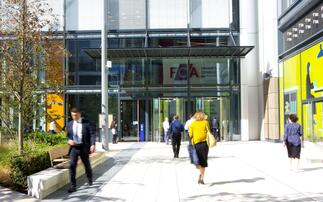A new broker body has been launched in a bid to raise standards of behaviour and practice in the profession.
The Insurance Brokers Standards Council (IBSC) claims that the industry is in need of a code of conduct.
The body will not accept funding from outside the broking community but is keen to work with Biba and the CII.
The organisation will be chaired by Paul Anscombe of James Hallam, while the steering committee will include Alec Finch, Steve Burrows of Cobra, Andrew Scott of Aston Scott and Steve Bamforth of Griffiths & Armour.
According to the new body, its efforts will benefit clients and support insurance brokers by giving them access to a body of opinion from their peers on a range of issues.
Members will be invited to contribute to that body of opinion on an ongoing basis to develop up-to-date and relevant opinion for the profession.
In a statement the council highlighted that its "cornerstone" was "that the standards of a profession - complimentary to legal and regulatory standards - should be defined by the individual practitioners themselves".
It added that the founding insurance broking practitioners wanted to put "the destiny of the profession firmly in the hands of the insurance brokers themselves".
The current members of the steering committee will be supported by professional advisers, including Robin Wood of compliance consultancy RWA, John Needham of accountants PFK Littlejohn, Roger Franklin of solicitors Edwin Coe and Ben Elkington QC.
According to the ISBC as membership grows, representation on the council will most likely be expanded to comprise committees of practicing insurance brokers taking into account geographical spread and class of business.
At present the council listed the four key areas it will focus on as being:
1. The interaction between insurance broker and client.
2. The interaction between insurance broker and insurance broker.
3. The interaction between insurance broker and other stakeholders such as insurers or the Financial Conduct Authority (FCA).
4. Training and competence.
Membership will be on an individual basis but insurance broking firms can become associate members if they are prepared to endorse the code of conduct created by the council.
In addition it stressed that individual membership fees will be kept to an absolute minimum given that the council is a ‘not-for-profit' professional body.
Paul Anscombe commented: "The IBSC will be dedicated to raising standards in the insurance broking community for the benefit of our clients and for the stakeholders in our profession, including insurers.
"We believe that our work will support both the Financial Conduct Authority and the professional bodies in our sector, particularly the British Insurance Brokers' Association (Biba) and the Chartered Insurance Institute (CII).
"It is vital that the council supports the extremely important work carried out by Biba for our profession with the government, press, business community and the general public."
He added: "We would also seek to fully support the CII in promoting chartered status and contributing to debates on content for broker examinations."
The IBSC will launch its website soon and has committed to signing and launching its constitution by 1 March 2014.
It is already open for applications for membership.














